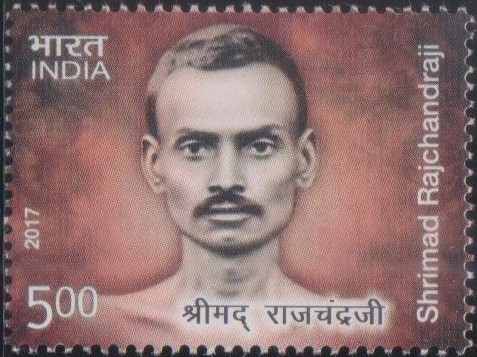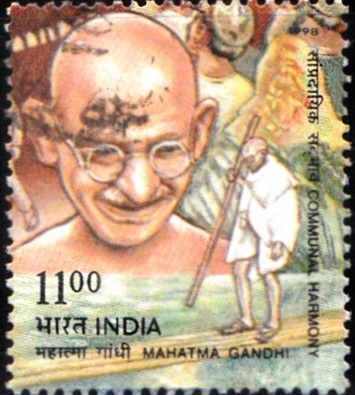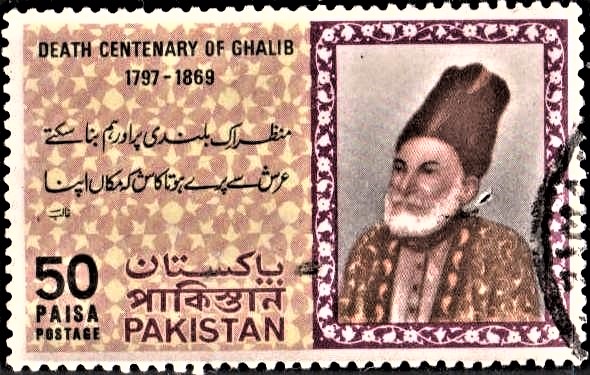
Shrimad Rajchandraji
A commemorative postage stamp on ‘Param Krupalu Dev‘ Shrimad Rajchandra, an Indian Gujarati Jain poet, mystic, philosopher, scholar and reformer :
 Issued by India
Issued by India
Issued on Jun 29, 2017
Issued for : Department of Posts is pleased to release a Commemorative Postage Stamp on Shrimad Rajchandraji.
Credits :
Stamp/First Day Cover/Brochure/Cancellation Cachet : Sh. Brahm Prakash
Type : Stamp, Mint Condition
Colour : Multi Colour
Denomination : 500 Paise
Stamps Printed : 477640
Printing Process : Wet Offset
Printer : Security Printing Press, Hyderabad
Name : Laxminandan Ravjibhai Mehta
Born on 9 Nov, 1867 at Vavania, Morbi district, Gujarat, India
Died on 9 Apr, 1901 at Rajkot, Gujarat, India
About :
- Shrimad Rajchandraji was born to Smt. Devba and Shri Ravjibhai on Kartik Purnima in V.S. 1924 – 9th November, 1867 at Vavania (Gujarat, India). At the young age of 7, on witnessing the burning pyre of an acquaintance, he underwent unprecedented mental churning thus attaining “Jatismaranjnan” (a recollection of several past lives). As a child, Shrimadji showed remarkable grasping power and memory at school and completed the study of 7 academic years in just 2 years. As a teenager, he mastered almost all the eminent treatises on philosophy with the sole purpose of discovering the Ultimate Truth.
- Shrimadji was endowed with many extraordinary mental and intellectual powers. Despite a sentiment of detachment and a burning desire for renunciation, at the age of 20, he had to tie the knot and engage in business.
- A consciousness deeply immersed in the Truth, he experienced a powerful emotional spiritual state of being, self-realisation, at the age of 23. He kept this flame alive even amidst worldly activities. After the age of 28, he began to spend 4 to 6 months of the year in the seclusion of jungles, mountains and remote places in Gujarat, effortlessly leading an austere life. Shrimadji’s health deteriorated in the year 1900 due to a severe illness from which he did not recover. In spite of extreme physical discomfort, his persona radiated bliss. His soul left his mortal body on the day of Chaitra Vad Pancham, V.S. 1957 – 9th April, 1901 at Rajkot. In the short span of 33 years, he not only soared high in the spiritual skies, but was also instrumental in directing many others on the path of enlightenment.
- Among those who came in contact with Shrimadji was the Father of the Nation, Mahatma Gandhi. Their association continued through correspondence even after Gandhiji moved to South Africa. This close association contributed a great deal in moulding Gandhiji’s philosophy. He attributes his strong foundation of truth, non-violence and compassion, to Shrimadji. Gandhiji mentions Shrimadji in his writings and in his autobiography, ‘The Story of My Experiments with Truth.’ Mahatma Gandhi says, “This man has won my heart in spiritual matters and no one else has ever made on me the same impression. I have said elsewhere that besides Kavi (Shrimadji), Ruskin and Tolstoy have contributed in forming my intrinsic character; but Kavi has had a more profound effect because I had come in personal and intimate contact with him.” (Modern Review, June 1930).
- His invaluable writings have been compiled and published in the volume, ‘Shrimad Rajchandra.’ The poetic composition ‘Shri Atmasiddhi Shastra’, is one of Shrimadji’s finest works. Penned in a single sitting of only 1.5-2 hours, its 142 verses form a masterpiece in philosophical literature. There are also other treatises, poetic compositions, articles, aphorisms and his personal notes reflecting his deep contemplation and profound inner state. A large part of Shrimadji’s legacy in his letters written to seekers.
- Text : Based on the material received from proponent.
Subscribe
Login
0 Comments
Oldest







